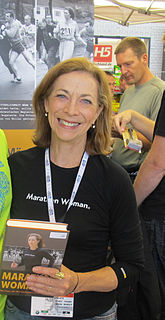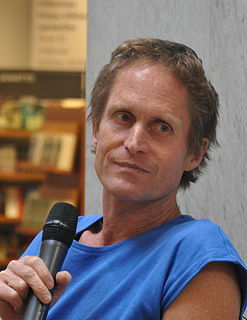A Quote by Jean Anthelme Brillat-Savarin
All men, even those we call savages, have been so tormented by the passion for strong drinks, that limited as their capacities were, they were yet able to manufacture them.
Related Quotes
When I was first running marathons, we were sailing on a flat earth. We were afraid we'd get big legs, grow mustaches, not get boyfriends, not be able to have babies. Women thought that something would happen to them, that they'd break down or turn into men, something shadowy, when they were only limited by their own society's sense of limitations.
The great bulk of the legal voters of the South were men who owned no slaves; their homes were generally in the hills and poor country; their facilities for educating their children, even up to the point of reading and writing, were very limited; their interest in the contest was very meagre--what there was, if they had been capable of seeing it, was with the North; they too needed emancipation.
The advertising men made it clear that there were two ways of looking at ideas in a war against fascism. Those of us who were working on the project believed ideas were to be fought for; the advertising men believed they were to be sold. The audience, those at home in wartime, were not 'citizens' or 'people.' They were 'customers.'
War! When I but think of this word, I feel bewildered, as though they were speaking to me of sorcery, of the Inquisition, of a distant, finished, abominable, monstrous, unnatural thing. When they speak to us of cannibals, we smile proudly, as we proclaim our superiority to these savages. Who are the real savages? Those who struggle in order to eat those whom they vanquish, or those who struggle merely to kill?
...men, groping in the Arctic darkness, had found a yellow metal, and because steamship and transportation companies were booming the find, thousands of men were rushing into the Northland. These men wanted dogs, and the dogs they wanted were heavy dogs, with strong muscles by which to toil, and furry coats to protect them from the frost.
But even if we were to disappear, people would still be divided into people and Others. No matter how those Others were different.People can't get by without Others. Put two people on an uninhabited island, and you'll have a human being and an Other. And the difference is that an Other is always tormented by his differentness. It's easier for people. They know they're people, and that's what they ought to be. And they all have no choice but to be that way. All of them, forever.
There were always men looking for jobs in America. There were always all these usable bodies. And I wanted to be a writer. Almost everybody was a writer. Not everybody thought they could be a dentist or an automobile mechanic but everybody knew they could be a writer. Of those fifty guys in the room, probably fifteen of them thought they were writers. Almost everybody used words and could write them down, i.e., almost everybody could be a writer. But most men, fortunately, aren't writers, or even cab drivers, and some men - many men - unfortunately aren't anything.
Those who were on the inside, the majority that is, for them it had been hard to get his point, mostly they were just pleased that they were on the inside, that they were the fittest. For those on the outside, the fear and abandonment amounts to almost everything; everybody knows that. Understanding is something one does best when one is on the borderline.




































